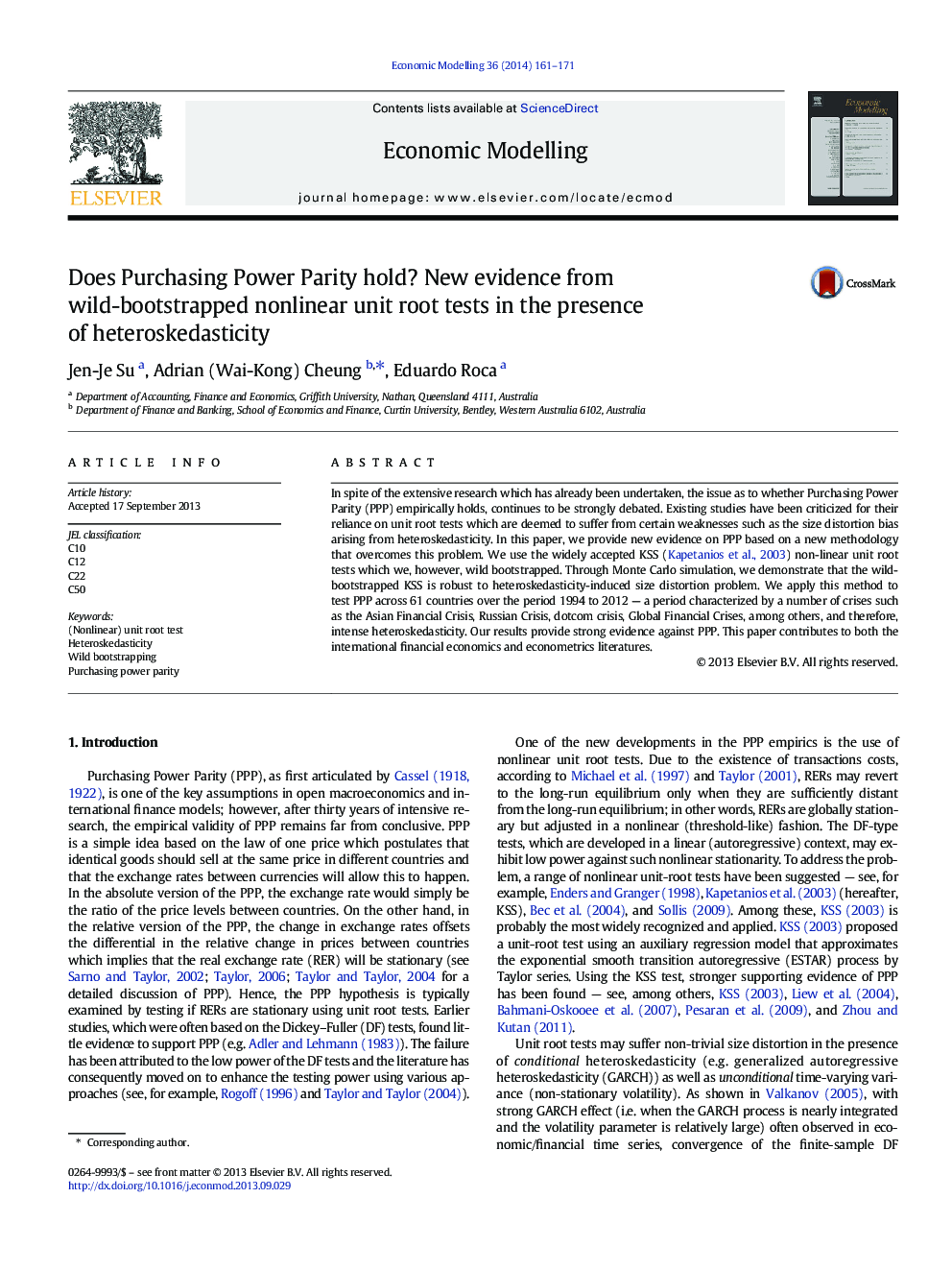| Article ID | Journal | Published Year | Pages | File Type |
|---|---|---|---|---|
| 5054284 | Economic Modelling | 2014 | 11 Pages |
Abstract
In spite of the extensive research which has already been undertaken, the issue as to whether Purchasing Power Parity (PPP) empirically holds, continues to be strongly debated. Existing studies have been criticized for their reliance on unit root tests which are deemed to suffer from certain weaknesses such as the size distortion bias arising from heteroskedasticity. In this paper, we provide new evidence on PPP based on a new methodology that overcomes this problem. We use the widely accepted KSS (Kapetanios et al., 2003) non-linear unit root tests which we, however, wild bootstrapped. Through Monte Carlo simulation, we demonstrate that the wild-bootstrapped KSS is robust to heteroskedasticity-induced size distortion problem. We apply this method to test PPP across 61 countries over the period 1994 to 2012 - a period characterized by a number of crises such as the Asian Financial Crisis, Russian Crisis, dotcom crisis, Global Financial Crises, among others, and therefore, intense heteroskedasticity. Our results provide strong evidence against PPP. This paper contributes to both the international financial economics and econometrics literatures.
Related Topics
Social Sciences and Humanities
Economics, Econometrics and Finance
Economics and Econometrics
Authors
Jen-Je Su, Adrian (Wai-Kong) Cheung, Eduardo Roca,
